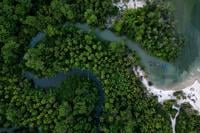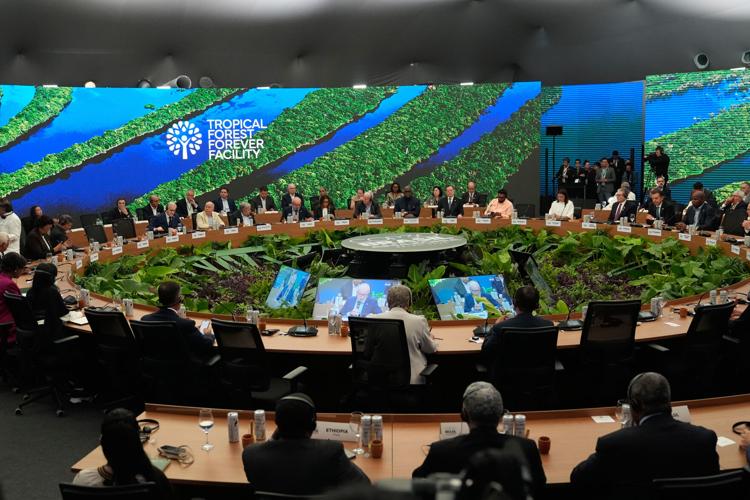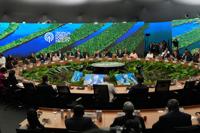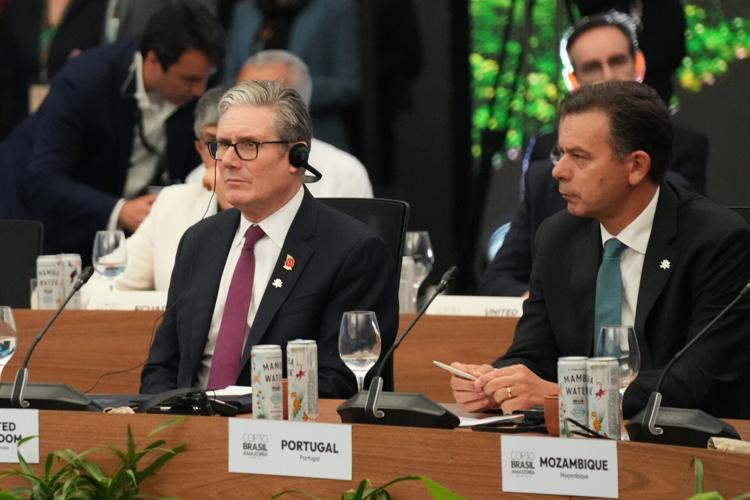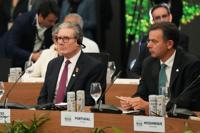BELEM, Brazil (AP) — Brazil on Thursday unveiled long-awaited details of a plan to pay countries to preserve their tropical forests and announced it had already drawn $5.5 billion in pledges.
The fund is President Luiz Inácio Lula da Silva's flagship project as he welcomes world leaders to the edge of the Amazon for the United Nations annual climate summit — an effort to draw attention and money to the imperiled rainforest crucial to curbing global warming.
Financed by interest-bearing debt instead of donations, the fund, dubbed the Tropical Forests Forever Facility, seeks to turn the economic logic of deforestation on its head by making it more lucrative for governments to keep their trees rather than cut them down.
Although destroying rainforests makes money for cattle ranchers, miners and illegal loggers, Brazil hopes to convince countries that preserving forests promises richer rewards for the entire world by absorbing huge amounts of planet-warming emissions.
As senior Brazilian officials walked reporters through the fund’s inner workings, Norway pledged $3 billion — the biggest commitment of the day — raising hopes about Lula's ambitions becoming a reality.
Through investments in fixed-rate assets, the fund aims to issue $25 billion of debt within its first few years before leveraging that into a pot worth $125 billion that can pay developing countries to protect their tropical rainforests.
A list of more than 70 heavily forested countries — from Congo to Colombia — will be eligible for payments as long as they keep deforestation below a set rate. Nations that fail to protect their forests will see their payouts reduced at a punitive rate for every hectare that’s destroyed.
“I was already very excited about this, but now even more so,” Brazilian Finance Minister Fernando Haddad said in a press conference.
But the fine print on Norway’s announcement — contingent on Brazil raising some $9.8 billion in other contributions — has ramped up the pressure on Brazil to deliver. Other pledges include $1 billion from Indonesia and $500 million from France, along with $5 million from the Netherlands and $1 million from Portugal toward setup costs.
Brazil earlier announced $1 billion to kick off the fund. Officials said they expected to hear about Germany's contribution on Friday.
But it remained unclear how many other countries would follow suit. U.K. Prime Minister Keir Starmer expressed support for the initiative on Thursday but declined to declare a pledge.
Brazil is also banking on the participation of the private sector after the fund reaches $10 billion, considered enough to start preparing bond issuances.
When asked about possible concerns on Thursday, Norwegian Climate Minister Andreas Bjelland Eriksen said he thought the risks to the fund were “manageable.”
“There is perhaps an even bigger risk of not participating,” he said. “Rainforests are disappearing before our eyes.”
The fund’s rules call for 20% of the money to go to Indigenous peoples.
“These initiatives demonstrate a massive and welcome shift in recognizing the central role that Indigenous peoples, Afro-descendants and local communities play in protecting the forests that sustain us," said Wanjira Mathai, managing director for Africa and Global Partnerships at the World Resources Institute, a research organization.
“These commitments could be transformative, but only if governments turn these words into action.”
The Associated Press’ climate and environmental coverage receives financial support from multiple private foundations. AP is solely responsible for all content. Find AP’s standards for working with philanthropies, a list of supporters and funded coverage areas at AP.org







